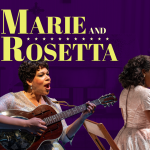Mansfield Park
 Reading “classics” is usually looked upon as a distasteful and daunting experience. But I promise you: some classics are worth it. Everyone has, at some point, been forced against their will to read Moby Dick or Anna Karenina. Mansfield Park is nothing like those other classics.
Reading “classics” is usually looked upon as a distasteful and daunting experience. But I promise you: some classics are worth it. Everyone has, at some point, been forced against their will to read Moby Dick or Anna Karenina. Mansfield Park is nothing like those other classics.
Jane Austen is experiencing something of a revival these days (although to some of us, she never went away). Last month, the New York Times Book Review featured two (yes, two) different critical assays of Austen’s oeuvre.
Jane Austen is beloved of readers the world over. Her novels have been the fodder for countless film adaptations, both direct and indirect. Her more famous works are Pride and Prejudice and Sense and Sensibitility, and perhaps Emma, the inspiration for the iconic mid-90s teenage chick-flick Clueless. But Miss Austen completed six novels over the course of her life, and almost finished a seventh, and it is to one of these lesser-known works that I commend you.
Mansfield Park is centrally the story of Fanny Price, the eldest daughter of a woman of good family and connections who married far beneath her for love. The Prices are poor. Fanny is taken in by her mother’s sister and very wealthy husband when she is twelve, and Austen uses the eyes of this poor relation in a great house to expose some of the finer and more ridiculous ideas of decorum from England’s Regency era. Austen is known as a wit, and this reputation is justified more by Mansfield Park than any of her other novels.
 The social mores of Regency England were a complex amalgamation of pushiness and reserve. Everyone is, of course, striving to better their position and family through the correct marriage, and yet to be perceived as really trying would be considered vulgar. Austen has a knack for bringing forward the absurdities of such mercenary aims masked by such extremes of English reserve. Propriety is valued above all else, and proper behavior is hilarious when you know how someone really feels.
The social mores of Regency England were a complex amalgamation of pushiness and reserve. Everyone is, of course, striving to better their position and family through the correct marriage, and yet to be perceived as really trying would be considered vulgar. Austen has a knack for bringing forward the absurdities of such mercenary aims masked by such extremes of English reserve. Propriety is valued above all else, and proper behavior is hilarious when you know how someone really feels.
The elaborate manners that govern all social interaction in Austen’s world are a source of amusement without any help from interesting characters, and Mansfield Park happens to be populated with very interesting characters.
Fanny’s own meek nature, as well as the comparative forwardness of her female cousins, the paternal and patronizing attitude of her uncle, the dissoluteness of her male cousins, and the absolute idleness of her aunt are all made a mockery of by Miss Austen’s pen. She is equally unkind to all of them in her commentary on their behavior, and they all behave in ways that completely warrant derision.
At the last, however, Mansfield Park is my favorite of Austen’s novels because despite the terrible things that occur within the family, everyone turns out exactly as happy as their nature will allow. Everyone ends up in the situation to which they are most suited, and while Austen’s wit is fully on display as she jeers and jabs at those natures, it is intensely gratifying to be entertained by laughing at someone, and then vindicated for being so mean by knowing that everything turned out as well as it could possibly could in the end.
Mansfield Park is a masterpiece of dry humor, an elegant portrait of understated venom, and a genuinely happy ending, all at once. This is why it’s a classic, and classics like that are well-worth reading over and over again.





















